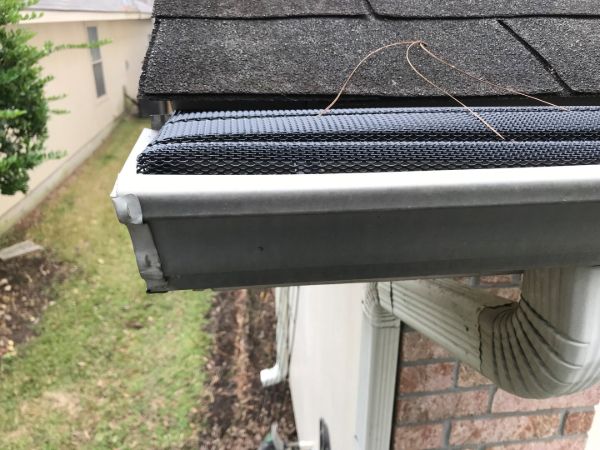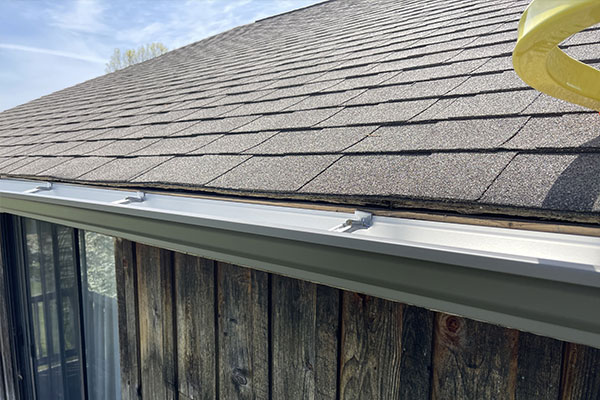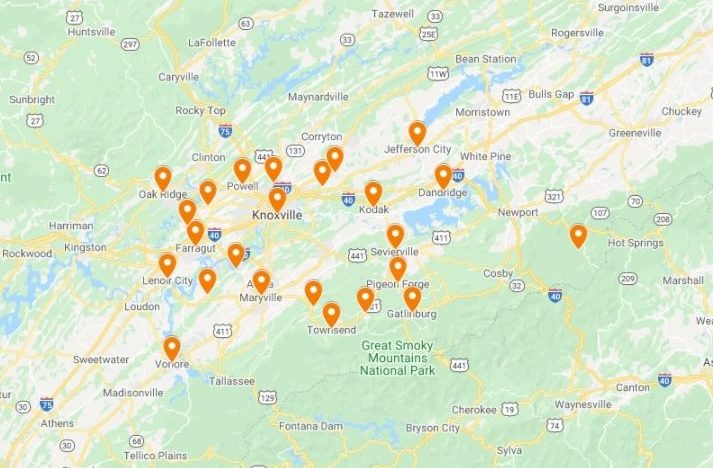When people think of basement flooding, they often blame rising groundwater or heavy storms, but the real culprit might be right above your head. Your roof and gutters play a huge role in protecting your home from water damage. When they’re working properly, they collect rainwater and move it safely away. But when they fail, all that water can end up right at your foundation. In this blog, we’ll uncover how poor roof drainage can lead to serious basement flooding and how to stop it before it starts.

The Role of Gutters and Downspouts
Gutters and downspouts may not be the flashiest part of your home, but they play a vital role in keeping it dry and damage-free. Think of them as your home’s drainage system—working together to manage rainwater and protect your foundation.
When it rains, gutters catch the water that runs off your roof and guide it toward the downspouts. From there, the downspouts channel that water away from your home, ideally several feet from the foundation. This simple system keeps your roof, siding, and basement dry.
But when gutters are clogged with leaves, sagging, cracked, or improperly angled, they can’t do their job. Water starts to spill over the edges, soaking the ground right next to your house. Over time, this excess moisture can erode the soil, seep into foundation cracks, and even lead to basement flooding. What starts as a little overflow from above can quickly become a costly mess below.
How Roof Runoff Impacts Ground Saturation
Your roof is designed to shed a massive amount of water during rainstorms, but without properly installed and functioning gutters, all that water has nowhere to go except straight down. Instead of being redirected away, it pours off the roof like a waterfall and lands right at the base of your home.
Over time, this creates a serious problem. Water begins to pool around the foundation, soaking into the soil and causing it to become overly saturated. As the ground becomes heavier and wetter, it starts to erode, shift, and press harder against your basement walls. This added pressure (called hydrostatic pressure) can force water through tiny cracks in the foundation, leading to leaks, mold, and even basement flooding.
What’s worse, this kind of saturation doesn’t just go away when the storm passes. The trapped moisture lingers, keeping your basement at constant risk and weakening the structural integrity of your foundation over time. Simply put, unmanaged roof runoff turns a strong, dry home into a waterlogged disaster waiting to happen.
What Happens When Gutters Fail
When gutters fail, it’s a direct threat to your home. Overflowing gutters spill rainwater over the edges, dumping it right next to your foundation instead of directing it safely away. This constant oversaturation weakens the soil, increases the risk of leaks, and puts pressure on your basement walls.
Blocked downspouts are another hidden danger. When they’re clogged with debris, water has nowhere to go and backs up into the gutter system. The result? Even more overflow and potential water damage to your roofline and siding.
In winter, things get worse. Ice dams form when snow melts and refreezes in clogged gutters, forcing water under your shingles. This can lead to roof damage, leaks, and interior water stains—problems that are costly and entirely preventable.

From Overflow to Flood: The Path to Your Basement
It starts with overflowing gutters or downspouts spilling water near your foundation. Over time, that water seeps into the soil, saturating the ground around your home. As the moisture builds up, it creates hydrostatic pressure, a powerful force that pushes water through even the smallest cracks in your foundation or window wells.
Once inside, water begins to quietly damage your basement. You might notice musty odors, peeling paint, warped walls, or damp spots that never seem to dry. In more severe cases, you could find standing water or mold growth. What seems like a harmless drip or puddle can quickly turn into a full-on basement flood. That’s why managing runoff at the source is the first line of defense against costly water damage.
Prevention Tips
The best way to protect your home from basement flooding is to stop water problems before they start. Begin with regular gutter maintenance. Clean them out at least twice a year, especially in the fall and spring when leaves and debris are most likely to clog the system.
Next, check your downspout extensions. They should direct water at least 4 to 6 feet away from your foundation to prevent pooling around the base of your home. Don’t forget to inspect your roof’s drainage system and make sure the ground slopes away from the structure.
For extra peace of mind, consider installing gutter guards to minimize buildup or schedule a professional inspection. A little maintenance now can save you thousands in repairs later.
Choose Gutter On for High-Quality Gutters
Worried your gutters aren’t doing their job? Don’t wait for a leaky basement or costly repairs to find out. Gutter On offers free inspections to spot issues before they turn into problems. Whether it’s a simple clog or a bigger drainage concern, we’ve got you covered. Contact us today and take the first step toward protecting your home from water damage—starting from the top.



